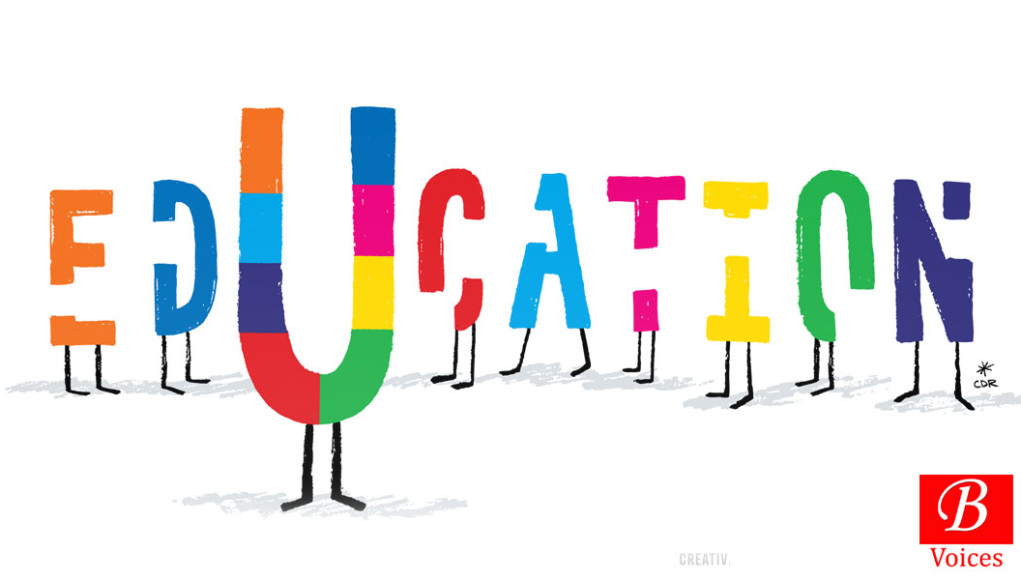Ayaz Ahmed
Since 1947, all consecutive rulers have pledged to educate the whole province of Balochistan, but they have reneged on their half-hearted intentions time and again. Today, a large number of children deserving compulsory education in Balochistan are either out of school or being imparted with a sort of imperfect education manifestly bereft of effective quality and recognized standard.
In Balochistan, the burgeoning youth population – making up roughly 60 percent of the province’s inhabitants – has yet to be endowed with quality and character-building education. If the incumbent federal and provincial setups exercise further reluctance and indifference in terms of educating the youth qualitatively, the resource-rich province will never become an economic power amongst the federating units of Pakistan.
First, the literacy ratio of the province is rather unsatisfactory. According to a report published in a national daily, the education ratio of Balochistan is around 39 percent, and the female literacy rate in certain districts is as low as less than one percent. A large number of children aged between 5 to 16 are out of school. Alif Ailaan puts this number as 66 percent. Alarmingly, 42 percent of 10 to 18-year-old girls have never attended school. The dropout rate is too high in most schools in the province. As per a recent report, out of 1.3 million children, only around 50,000 students appear in matric examinations every year in the province.
Second, Balochistan is lacking in an adequate number of schools and trained teachers in order to increase both quantity and quality in the education sector. Third, most schools in the province are in dilapidated condition and bereft of required facilities i.e., scientific equipments, adequate class rooms, clean drinking water, play grounds and toilets. Moreover, a large number of teachers lack requisite qualifications and relevant training. To exacerbate this, many teachers get recruited either by favoritism or they pay large sum of money. Further, unchecked widespread corruption, absenteeism, lack of job satisfaction, closure of schools by recurrent strikes, existence of thousands of ghost teachers, sway of landlords over schools and poor socio-economic conditions of parents are some of the major mounting problems confronting the education of the province.
Fourth, the majority of teachers arbitrarily misuse their powers while performing their duties. They arrive late for class, discourage students who ask questions, take bribes and allocate marks and positions to the powerful and influential students, rather than the hard working and intelligent ones. Any student who protests against such behaviour is either dismissed or deliberately failed in the examinations. These practices do not educate the students but rather ruin their future.
Fifth, student unions are aimed at promoting and facilitating education on campuses. The government has recently decided to lift the long-lasting ban on these groups. The government in Balochistan should be cognizant that these are not student unions but sub-branches of our corrupt political parties created to cultivate political influence on campuses. Most student unions in the province forcibly suspend classes, smash windows at universities and colleges during violent clashes, uproot plants and threaten teachers into giving extra marks to certain students. If full freedom is given to such politicized groups, there will be more bloodshed and suspension of classes especially at University of Balochistan in Quetta.
Sixth, have we not realized that the current six-month semester system is defective? Due to a host of holidays, coupled with the unchecked absenteeism of incompetent teachers, students dismally fail to benefit from classes. Most teachers are unable to complete the essential topics before the final examinations, which badly impacts the knowledge of the students in the subjects. As a result, 7-10 questions are given to students on the eve of the examinations. We cannot blindly follow the American education system, while ignoring the intrinsic ground realities.
Seventh, those who are experts at memorizing study materials are rewarded highest positions in final examinations. The culture of rote memorization has greatly obstructed the students’ ability to utilize their potentials in the province. When intelligent students find that hard work doesn’t pay, they also begin to rote-learnt the examination materials. Most students are bereft of innovative, creative, critical thinking and knowledge, thus failing to contribute to the socio-economic prosperity of the province.
Eight, the knowledge of economics is unknown to most of the students in the province. A large number of graduates, and even those with PhDs, are unaware of market dynamics and the economy, which makes them unfit for all sorts of jobs. Many companies avoid employing the graduates of Balochistan’s public sector universities, because they would only increase the losses rather than the profits of the companies. Therefore, the unemployed youths either leave the province or join terrorist and militant organizations.
Ninth, the province desperately lacks an effective and uniform education system based on well-researched syllabi. The students of expensive private educational institutions outsmart those of the neglected public sector. The graduates of private universities easily find employment owing to their competence and expertise, thus increasing the gap between the poor and the rich in society.
Lastly, there are more than 1,667 registered religious schools across the province. A large number of students from religious backgrounds or poor families are enrolled in these seminaries. These learning centers only focus on the religious education of the students. The majority of students lack practical knowledge of any field and, thus fail to acquire jobs. As a result, a significant number of these unemployed students end up joining militant and terrorist outfits.
To tackle the brewing education crises, the previous National Party-led government declared an education emergency in the province while enforcing the article 25-A of the constitution. In this regard, the governmnet allocated 26 percent of the total budget in 2014-15 to the education sector.
However, The PML-N-led provincial government should keep in mind that without reforming and promoting education, all plans of its economic growth in the province will fail in the foreseeable future. If the government wishes to acquire national power, national interest and national prestige, it should prudently reform the education sector aimed at increasing the quality and quantity of education throughout the province. Before that, all stumbling blocks plaguing the sector must be removed on an urgent basis.
Writer is future columnist for Balochistan Voices. He can be reached at [email protected]
Share your comments!








